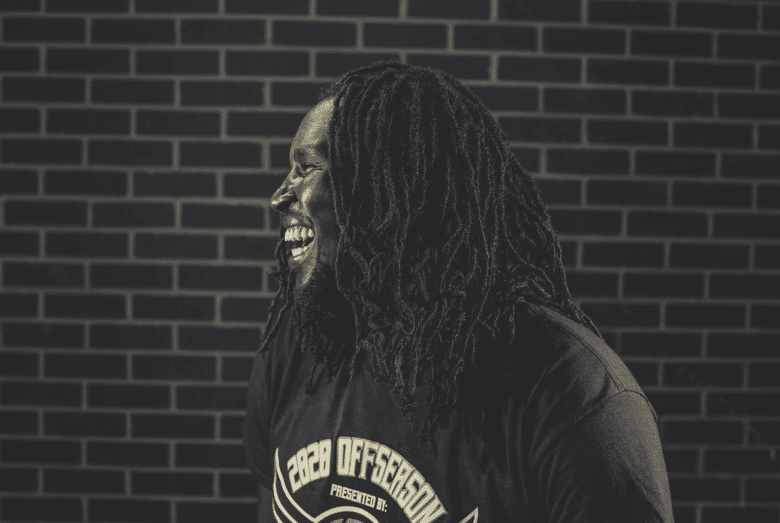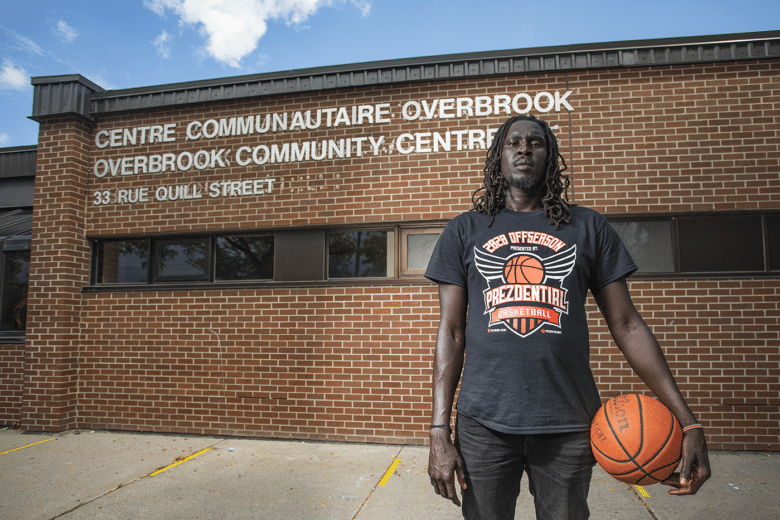
Manock Lual is a former refugee from South Sudan, and now an entrepreneur and basketball coach in Ottawa, Canada. Photo courtesy of Prezdential.
By Gisele Nyembwe
“I want you guys to learn to trust yourself. You can’t walk with your heads low or be afraid to express yourself.”
Manock Lual tells his players to know their worth and be proud of who they are.
The 32-year old former pro-ball player is the founder and head coach of Prezdential, a basketball mentorship program in the east end of Ottawa. He uses basketball to teach youth from the less affluent community how to build confidence and overcome adversity.
It’s a personal mission for Manock, who growing up as a Black man experienced prejudice and racism.
Though Canada has provided peace, opportunities and many moments of joy for his family who arrived in Ottawa as refugees from South Sudan when he was four years old, he admits that being of a darker skin tone has not always been easy.
“I was seven when I first experienced systemic racism,” Manock says. “My sister was brutally beaten at school for no apparent reason by a group of white boys who broke her finger.”

Manock Lual stands in front of the Overbrook Community Centre in Ottawa east end, where he runs basketball practices.
“At the hospital, no one believed my father when he told them about the attack at school. We (children) were separated from my father and questioned in another room implying this was a case of child abuse.”
Racial injustice remains a pressing issue. It has driven millions of people to flee from their homes and continues to affect many refugees even as they try to rebuild their lives in their new adopted lands.
Despite the traumatizing experience that sticks with Manock till today and the many others he has encountered in his lifetime, he says he has learned to prepare himself for such incidents.
“I tell the athletes: You can’t walk with your heads low or be afraid to express yourself.”
Over a hundred youth from all walks of life, White, Black, Indigenous and other people of colour attend Prezdential Basketball program.

Manock Lual enjoys a few minutes in between basketball drills, sitting on the basket and holding his ball.
As in any sport, uncovering one’s authentic best self and thriving for excellence are critical to a player’s performance on the basketball court. Manock wants his players to apply these skills to all the other aspects of life and to stand up against any forms of injustice and inequality.
He hopes that the conversation worldwide about racism and police brutality sparked by the death of George Floyd will change the narrative into one where Black people can begin to control their own stories, their identity, and the way they are being shown to the world.
“The future is bright as long as you shine your light,” he says.


